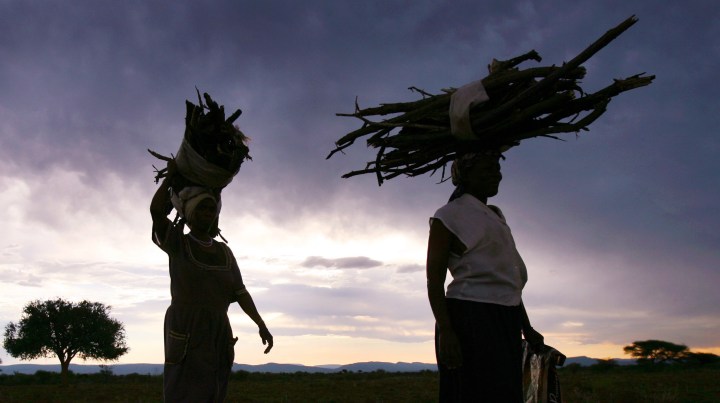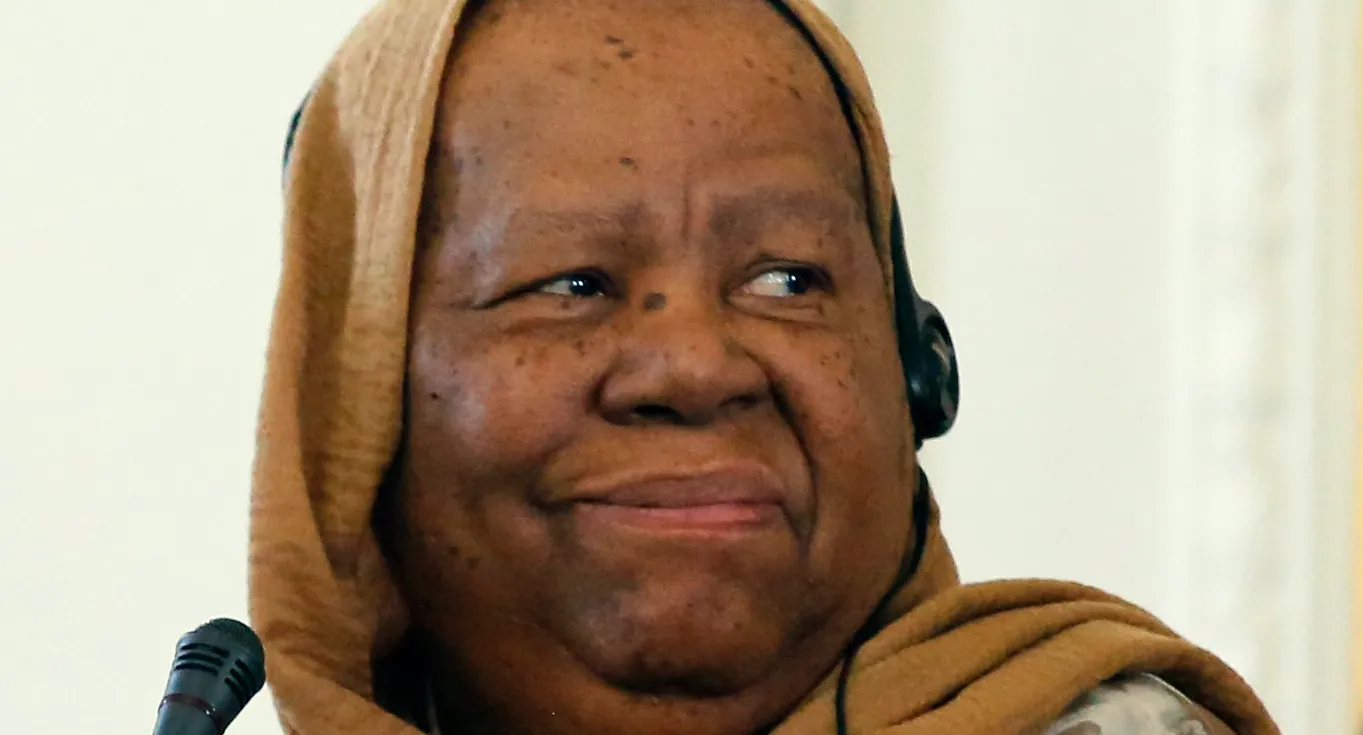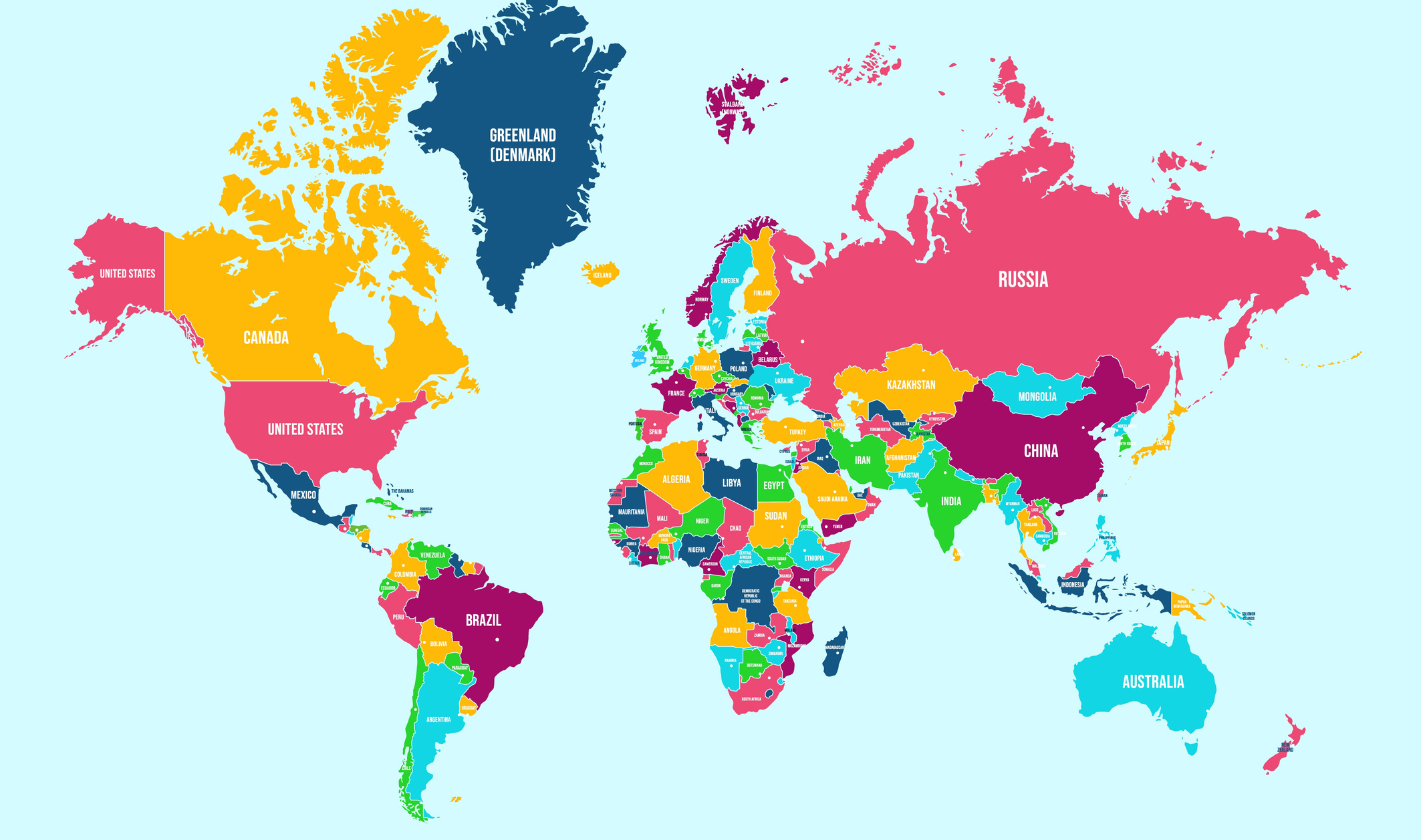WORLD DISORDER OP-ED
It’s time to rethink the chimera of the ‘Global South’

The term ‘Global South’ nowadays refers to all who have a grievance with ‘The West’ and the ‘world order’ which they believe to be rigged to keep the ‘Global South’ in perpetual poverty. It is a deeply problematic paradigm entrenching victimhood rather than agency. Far more useful would be the notion of the Free South.
The writer and activist Carl Oglesby is credited with inventing the term “global south” in an article published by the Catholic journal Commonweal.
Writing in a special edition dedicated to the Vietnam War, he was describing centuries of northern “dominance over the global south”, creating what he described as “an intolerable social order”.
The notion of the Global South has, in the years since this 1969 article, become a catchphrase for the “developing world”, including parts of Asia, the whole of Africa and Latin America, Central America and bits of the Middle East.
In the 1980s, former West German chancellor Willy Brandt drew a line separating the “wealthy north” from the “poor south”. The “Brandt Line” has endured as a rough guide to the “Global South”.
It was always a woolly concept and one which was used unenthusiastically for decades to describe a divide between wealthy developed nations and the “developing world”.
The trouble with the term “Global South” is that it is too vague to be of any serious analytical value. There is a broad shared geography if you overlook the swerve in the Brandt Line to exclude Japan, Australia and New Zealand. Beyond that, not much.
The “Global South” includes the world’s second-largest economy, China and many of the world’s smallest. There are countries that have experienced remarkable economic growth, such as Singapore, Taiwan and South Korea, and others that have languished in the economic backwaters.
And, when it comes to political systems, there are democracies, autocracies, monarchies and theocracies.
Writing in the International Politik Quarterly, Miriam Prys-Hansen summed it up: “There is neither agreement on who this Global South actually is, nor fundamentally on whether the Global South exists at all, given the great heterogeneity and the dynamics of those who are typically classified within it.”
Despite this, however, the term “Global South” is on the rise and has re-entered public life, but this time with a difference. Nowadays, “Global South” refers to all who have a grievance with “The West” and the “world order” which they believe to be rigged to keep the “Global South” in perpetual poverty.
While the Global South knows what it is against, it is less clear on what it stands for.
It is a deeply problematic paradigm entrenching victimhood rather than agency. It overlooks the obvious examples of economic success and development within its ranks and plumbs for the lowest common denominator. It externalises the causes of failure and excuses the member states from taking a long, hard look at their own failings – be they of political repression or of poor economic choices.

South African Foreign Minister Naledi Pandor attends a joint press conference with Iranian Foreign Minister Hossein Amir-Abdollahian after their meeting in Tehran, Iran, 22 October 2023. (Photo: EPA-EFE / ABEDIN TAHERKENAREH)
This notion of victimhood is typified by statements such as the ones made by International Relations and Cooperation Minister Naledi Pandor at a G77 summit in Havana, Cuba:
“The struggle for the soul of the South and for unilateral global dominance has never been more intense and as the South, we must seize this historic moment to ensure we develop the ability to be free agents of a development agenda that will advance our battle against poverty inequality and unemployment.
“It is vital for us to be aware that our ambition will not be a popular one as control of global innovation grants immense power over us to developed countries, thus it is not in their interest that we succeed.”
This view – quite different to those expressed by Pandor on her recent diplomatic trip to Washington to shore up relations – is laced with victimhood and paranoia, saying “many so-called partners will strive to divert our attention and break our unity”. Who are these global players who don’t want South Africa to succeed? Are they killing us softly with favourable trade deals and massive aid programmes to fight HIV and Aids?
Perhaps the better question is: Whose interests are served by the idea of a “Global South” struggling for freedom against a tyrannical “Global North”?
The answer is, of course, those nations who want to rewrite the world order to normalise their autocracies and stigmatise democracy. South Africa’s Russian and Iranian friends come to mind.
This is not the only irony. The Global South is attempting its own reformation and reset of international relations at a time when geoeconomics is being trumped by geopolitics. The paradox is that ideology has shifted. The past era of globalisation, which has led to more people being lifted from poverty than during any previous period of economic history, was shaped by three intersecting forces of ideology, technology and great power interests.
Turning the nebulous Global South into a forum of shared grievances about the world order is useful for the autocrats.
As Pascal Lamy, the former head of the World Trade Organization, points out, the challenge is not that the South, led by China and India, is uncommitted to contemporary globalisation through openness. “They are,” he says, “because it has been and is good for them.” Rather it is the North, led by the US, which is less convinced by the path of openness, and is moving to isolation, he warns, driven by a combination of domestic factors and technological and geopolitical rivalries.
Yet, since “less growth”, he warned at a meeting co-hosted by Diktio and ELIAMEP in Athens, “is not going to make people more happy”, deceleration of globalisation is more likely than its collapse. Yet there are others, in a further irony, including South Africa, that seem more interested in compensating the negative effects of global flows on the poor than benefiting from its overall thrust. In so doing, they risk undoing the structure of the very system.
There is a simple equation at play. To gain a share of global growth, you need to trade abroad. And to trade abroad, you need to be willing to accept imports. Protectionism threatens access to richer markets. Any legal, political or other frictions that raise the cost should be resisted, especially by those who need to ramp up their rates of domestic growth.
While there is every justification for the BRICS, as the centrepiece of the Global South, “to criticise the global order”, says Lamy, “so far they never came with a Plan B”. As a consequence, he says the BRICS “are a geopolitical system much more than a geoeconomical system, as is clear by the list of candidates to join the group”. There is little to share in economic terms between India, Russia, China, South Africa and Brazil.
Turning the nebulous Global South into a forum of shared grievances about the world order is useful for the autocrats. It offers a warm hearth of friendship and dulls the chill of global isolation.
While the Global South knows what it is against, it is less clear on what it stands for. The words of Alexander Hamilton come to mind: “Those who stand for nothing fall for anything.”
Read more in Daily Maverick: Here’s what a South African foreign policy should look like
And, tragically, free and democratic nations of the Global South are falling for the idea that it is okay to embrace autocrats and malign states than it is to embrace other democracies.
Freedom House, which produces a map of countries that are free, partly free or unfree, put it this way: “Autocrats persist in flouting laws and norms in part because they do not believe democracies are serious about upholding them.
“Economic prosperity and a more secure global community require a global order based on the rule of law, anti-corruption safeguards, and a willingness to abide by international security norms; only democracies can maintain such an order. Democratic leaders who ignore this fact imperil not just global freedom, but also security and economic growth.”
Far more useful would be the notion of the “Free South”, countries of the developing world that want to build open, democratic societies with thriving economies.
But that would be a Western plot, right? DM
Ray Hartley and Greg Mills are with The Brenthurst Foundation

















Just a support group for those wallowing in self pity and victimhood
Singapore, Taiwan and South Korea are not part of the Global South. Neither are Russia and China who exploit the Victimhood of the Global South for their own benefit.
The paradox is that the Global South will never have any independent power because economic success is a requirement for power, and as long as it follows its self harming policies, plays footsie with Russia and China and opposes the West it will remain poor.
They will “remain poor” because they reject the idea that wealth is the outcome of individual, and not state, enterprise. Adam Smith’s invisible hand is the key to wealth, not the grasping, greedy claws of socialism.
A good article in the Financial Times today “The White House knows that the global south has a point” by one of their best columnists Rana Foroohar
Inhis final lecture to us Wits economics majors in 1967, Prof Ludwig Lachmann made two excellent points;
1. He hoped that the three years of study had taught us how little we knew of the human action termed economics.
2. He predicted that “the wealth of the north and the poverty of the south would neve be solved”. Rather, he said “The poor will get into boats to escape their poverty and the rich will build fences to keep them out.” Prescient…
Prof Lachmann went on to be a recognised contributor to the “Austrian school” of economic theory.
For me the crux of the article is “To gain a share of global growth, you need to trade abroad” And for this to succeed you need to maintain your infrastructure like roads, rail and ports, which SA has failed abysmally to manage. And you need to choose your friends – you cannot maintain relationships with the likes of rogue states like Iran and Russia and expect to do well.
There is indeed something chimaerical about the Global South, embracing as it does a broad group of countries with differing economic and political models. But the idea does have some value, especially when viewed through the lens of the increasingly “Do as I say, not as I do” behaviour of the leading countries and blocs in the residual: the Global North. I strongly recommend Rana Foroohar’s editorial in today’s Financial Times: The White House knows that the global south has a point.
I was in India recently, where I visited officials of the Indian Foreign Ministry, among others. I promise you the concept of the “Global South” is alive, and though it might not mean anything to the Brenthurst Foundation, it is very useful to the Indian and other governments. (India, for example, is very keen to at least match China’s influence in the Global South.) It is more correct to say that the term might not have valence to those who are implicated in its inherent critique of how The West dominates the global economy. But countries in the Global South know what they mean when they say ‘Global South’.
The concept of ‘the Global South’ is, of course, extremely useful to the Indian government – as a means of rallying support for its leadership of this disaffected, motley collective and to assert its diplomatic and trade interests globally. Wakey wakey.
“Autocrats persist in flouting laws and norms in part because they do not believe democracies are serious about upholding them.”
History has proven this to be true, over and over again.
BRICS and Global South – nothing but a coalition of the bitter, twisted and wounded, who instead of looking at themselves and correcting their mostly errant, tyrannical, wayward and poverty inducing policies like corruption, grand theft, nepotism, unaccountability and adherence to failed socialist dogma, conveniently blame the North and the West. None of the vacuous leaders of these countries would invest their own money in Roubles, Yuan, Zim dollar etc. but in the US$, Euro and British Pounds.
Conceptualisation and definitions thereof, belongs to the definer. As far as geopolitical status quo, including regionalised economic interests are concerned, Africa is maligned, both historically and economically (global trade arrangements). The fact of the matter is that the external, geopolitical hegemonic powers, including the so-called international ‘investors’ in many instances, prefer imagined stability over genuine democracy and national autonomy, whenever is convenient. In the either political West or East, Africa does not have genuine allies. The only path is to deliberately and selectively align shared interests, even if it is in transitory arrangements to advance its own self-interests. That is the reality of global order, as it is.
Victimhood will never lead to economic, social or personal happiness and success. Enterprise and a future orientation is needed to achieve that.
This is a deeply weird article.
The Brenthurst Boys come across as a couple of codgers disgruntled at the rise of ‘wokeness’, except here it’s at a nation-state rather than an individual level. Like said codgers, they insist on their own definition of the global south (everyone who has a grievance with ‘The West’) rather than listening to what users of the term actually have to say.
Tellingly, when they do allow a voice other than theirs to speak, they cherry-pick a single example (Naledi Pandor) that best suits their narrative and brand it typical. Rather than engage with any serious critique of economic relations that uses the term, the concept is now dismissed as ‘a deeply problematic paradigm entrenching victimhood rather than agency’.
Their economic analysis is risible. Apparently, ‘There is a simple equation at play. To gain a share of global growth, you need to trade abroad. And to trade abroad, you need to be willing to accept imports.’ Thus utterly ignoring the fact that both Britain and the US built their economies on aggressive systems of tariffs against foreign imports.
But it is their assertion that ‘tragically, free and democratic nations of the Global South are falling for the idea that it is okay to embrace autocrats and malign states than it is to embrace other democracies, that rankles most. They quote the Freedom House report, but fail to mention that of the 85 countries considered not to be electoral democracies, the US arms and supports 49 of them.
Well put Simon.
This is a strange article. By and large, the retreat from free trade has not come from the Global South or, indeed, from China. Instead it was initiated by Trump’s trade war with China (remember he also tariffed products from other developing countries, including South African steel).
Surprisingly, the Biden Admin doubled-down on Trump’s trade policies – no doubt driven by a need to regain support from organized labour in the US. Industrial Policy, with its attendant subsidies and protectionism, is now suddenly all the rage in the Global North. All of this is a U-turn from the great era of globalization that drove massive reductions in poverty around the world.
As Branko Milanovic recently noted, members of the Global South – and specifically the expanded BRICS community – have very little in common in terms of shared values, ideas or interests. But the reason why the group is growing is “because it is the only place where nations not interested in participating in the new Cold War, or even in a possible hot war between the superpowers, can “runaway” in order NOT to have to choose sides.”
I read that Branko Milanovic article, David. As he says ‘It is a profound misunderstanding of what BRICS is, to search for commonalities amongst the members and not having found them to dismiss the organization.’
It’s troubling to see Mills and Hartley essentially parrot the Washington Consensus line. They have no idea why ‘the global south’ is increasingly gatvol of the West’s hypocrisy, and regards their claims to be the bastions of openness and democracy utterly laughable. They remind me of John Steenhuisen, bewilderedly lashing out because he can’t understand why everyone else doesn’t believe that what he’s selling is the chocolate-coated, saffron-sprinkled pinnacle of yummy deliciousness he says it is.
As I see it, and in our global neo- capital extractive regime, it always seems logical to follow the money, the Global South has a major share of the mineral resources that the Global North require. Cheap if they can. There is a lot of academic paper written on the Global economics from the African perspective. Gaddafi had the idea of a United States of Africa for this very reason of wresting the wealth and power of global economy from the (what’s now now known as the global North but in those days it was the ) West and making Africa able to utilize its natural resources for its own benefit.
Wars from and allies among the Global North seem to prevent this. All for their own reasons of course. So I see this North South nomenclature in these frames.